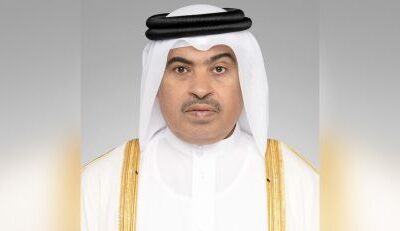Health
Countdown to FIFA Arab Cup Qatar 2025: Highlights from 2021

As Qatar prepares to host the FIFA Arab Cup for the second time, excitement builds for the tournament scheduled from December 1-18, 2025. This prestigious event will bring together 23 national teams, showcasing the region’s passion for football and cultural diversity. The first edition in 2021 set the stage for what promises to be another remarkable celebration of sport.
Looking Back: Key Highlights from the 2021 Tournament
The inaugural FIFA Arab Cup, held in 2021, marked a significant milestone as the first edition conducted under FIFA’s auspices. The tournament was a resounding success, attracting thousands of fans and serving as a prelude to the FIFA World Cup Qatar 2022.
Here are some notable highlights from the FIFA Arab Cup Qatar 2021:
1. Six FIFA World Cup Stadiums Hosted Matches
The tournament utilized six state-of-the-art stadiums, which were later featured in the FIFA World Cup Qatar 2022. Notably, Al Bayt Stadium hosted the opening match between Qatar and Bahrain, while Stadium 974 became the first fully demountable venue to be used in a FIFA World Cup.
2. 16 Arab National Teams Competed
A total of 16 teams participated, with Algeria emerging victorious, defeating Tunisia 2-0 in the final. The hosts, Qatar, achieved a commendable semi-final placement and claimed third place after a nail-biting penalty shootout against Egypt.
3. 83 Goals Scored Across Matches
The competition saw an impressive tally of 83 goals across 32 matches, averaging 2.59 goals per game. The highest-scoring match featured six goals, and three matches ended with a 5-1 scoreline. Seifeddine Jaziri of Tunisia earned the Golden Boot by netting four goals.
4. Ticket Sales Reflected Popularity
With 631,742 tickets allocated, the tournament showcased widespread appeal. Despite COVID-19 restrictions, several matches saw attendance exceed 80%, highlighting Qatar’s capability to host large-scale events safely during the pandemic.
5. Highest Attendance Recorded
The quarter-final match between Qatar and the United Arab Emirates drew 63,439 spectators at Al Bayt Stadium, marking the highest attendance for a single match and setting a national record for sporting events.
6. Global Viewership Reached 272 Million
The tournament attracted significant global interest, with an estimated 272 million viewers tuning in. The group stage clash between Algeria and Egypt garnered the highest views, reaffirming the event’s status as a premier football competition in the region.
7. Public Transport Usage Surged
Qatar’s advanced public transport system facilitated travel for 2.5 million fans during the tournament. All stadiums were accessible via metro, underscoring the compact nature of Qatar and enhancing the fan experience.
8. Accessibility Initiatives Introduced
For the first time, two stadiums provided audio descriptive commentary in Arabic for blind and partially sighted fans, while Education City Stadium included a sensory room for fans with sensory needs. These initiatives marked significant steps toward a more inclusive event.
9. Volunteers Played a Crucial Role
Approximately 5,000 volunteers from 92 different nationalities supported the tournament, reflecting a strong spirit of community involvement and marking a milestone for Qatar’s volunteer culture.
10. Media Coverage Expanded
Over 1,000 accredited journalists reported on the tournament, generating extensive coverage and international interest. Their presence underscored the significance of the event on a global scale.
Looking Ahead: FIFA Arab Cup Qatar 2025
The countdown for the FIFA Arab Cup Qatar 2025 is underway, with preparations well in hand. Qatar will once again showcase its ability to host major sporting events, building on the success of the 2021 tournament. The upcoming edition promises to be a spectacular event, with all matches played in the same six stadiums used during the World Cup.
Nine teams have qualified automatically based on FIFA rankings, while 14 others will compete for the remaining seven spots in qualifiers scheduled for November 25 and 26.
In addition to the FIFA Arab Cup Qatar 2025, Qatar will also host the FIFA U-17 World Cup from November 3-27, 2025, with future editions of the Arab Cup planned for 2029 and 2033. This continued commitment to hosting international tournaments highlights Qatar’s dedication to becoming a premier global sports destination.
-

 World3 weeks ago
World3 weeks agoPrivate Funeral Held for Dean Field and His Three Children
-

 Top Stories3 weeks ago
Top Stories3 weeks agoFuneral Planned for Field Siblings After Tragic House Fire
-

 Sports3 months ago
Sports3 months agoNetball New Zealand Stands Down Dame Noeline Taurua for Series
-

 Entertainment3 months ago
Entertainment3 months agoTributes Pour In for Lachlan Rofe, Reality Star, Dead at 47
-

 Entertainment2 months ago
Entertainment2 months agoNew ‘Maverick’ Chaser Joins Beat the Chasers Season Finale
-

 Sports3 months ago
Sports3 months agoSilver Ferns Legend Laura Langman Criticizes Team’s Attitude
-

 Sports1 month ago
Sports1 month agoEli Katoa Rushed to Hospital After Sideline Incident During Match
-

 World4 weeks ago
World4 weeks agoInvestigation Underway in Tragic Sanson House Fire Involving Family
-

 Politics2 months ago
Politics2 months agoNetball NZ Calls for Respect Amid Dame Taurua’s Standoff
-

 Top Stories3 weeks ago
Top Stories3 weeks agoShock and Grief Follow Tragic Family Deaths in New Zealand
-

 Sports2 weeks ago
Sports2 weeks agoEli Katoa Shares Positive Recovery Update After Brain Surgery
-

 Entertainment4 months ago
Entertainment4 months agoKhloe Kardashian Embraces Innovative Stem Cell Therapy in Mexico





















